“The most important thing is that all people know the Good News and we pass on the love we have received” emphasized Márton Juhász, Executive Director of the Hungarian Reformed Church Aid (HRCA). In addition to talking about the HRCA’s services in the past year, he encouraged that anyone can help in their own environment. This interview was conducted before Christmas.
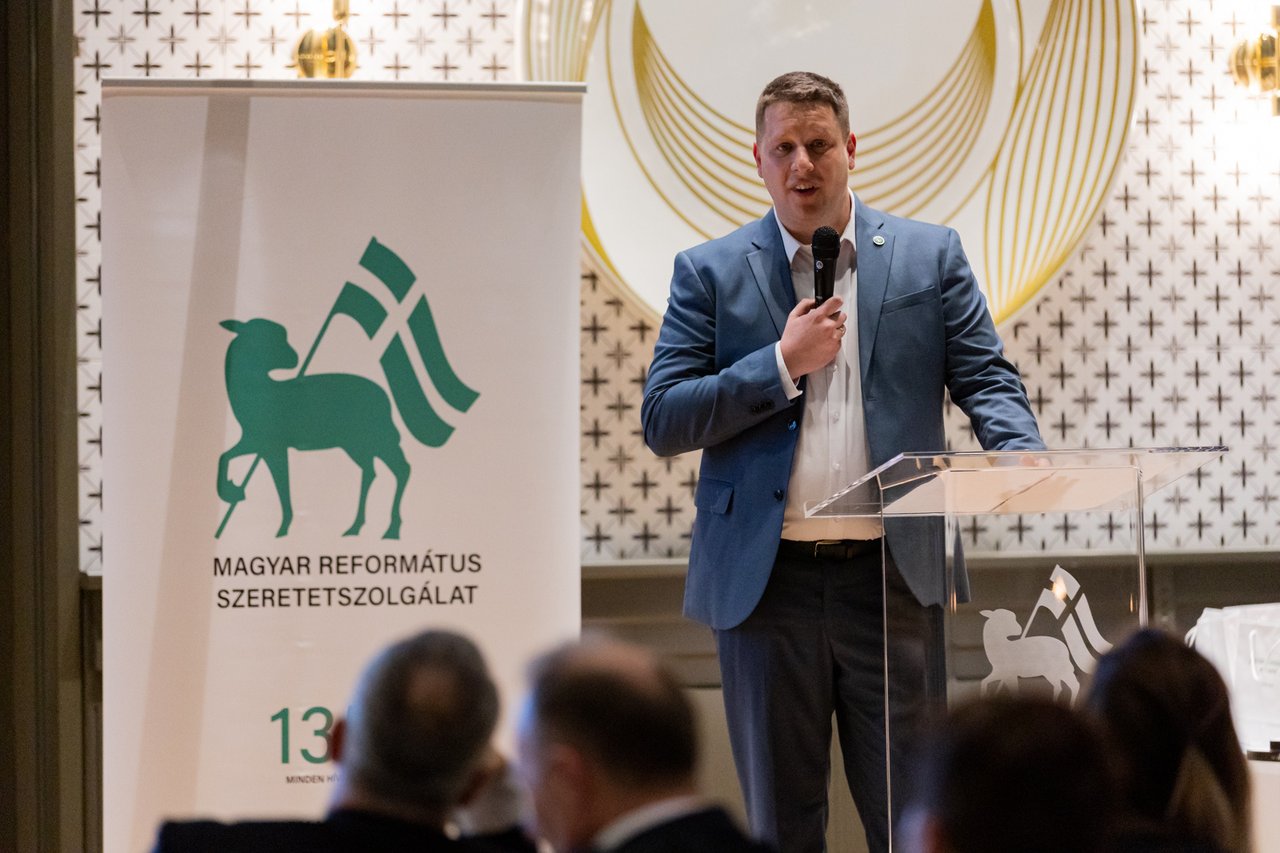
Photo: HRCA
The big Christmas collections are coming to an end, and the delivery of donations is coming to an end. How do you evaluate the collections of the Hungarian Reformed Charity Service (MRSZ) this year?
In principle, the objectives were achieved. The Wish List campaign was launched earlier than usual this year. I was a little afraid that October 20th might be a bit too early to talk to people about making Christmas better for children in need, but thankfully, it worked, and many people donated. This is important because these gifts have to be delivered before Christmas every year, and in this programme the children do not receive the gifts on an ad hoc basis but in a personalised way. We get exactly what they ask for, so the organisational and logistical tasks are more challenging.
This year, we have been able to delight 1,358 children and we expect to be able to give around 5,000 children a Misi the Arrow gift this year. This is a programme that other charities run called Shoebox, where we pack toys, gifts, and sweets for children. Plenty of them are going across the border: two thousand boxes to Transcarpathia and one thousand five hundred boxes to Transylvania. In addition, we plan to fill a total of 7,000 boxes with non-perishable food, and based on the numbers we are receiving, we think we will succeed. With an average of fifteen kilos per box, we expect to deliver around 100,000 kilos of durable food and hygiene products to families in need.
We operate primarily as an outstretched hand of the Church, so our primary partners are congregations, and Reformed educational and social institutions, but we have also been joined by municipalities and business companies, and of course, we also receive donations from individuals, for example at our department store collections held in several locations this year. Hundreds of volunteers have joined us during the Advent period, and there is a growing and useful habit of bringing people from companies to join us as a team-building exercise, and it is important for them to really help disadvantaged people. I think we are coming through a blessed fundraising and distribution period.
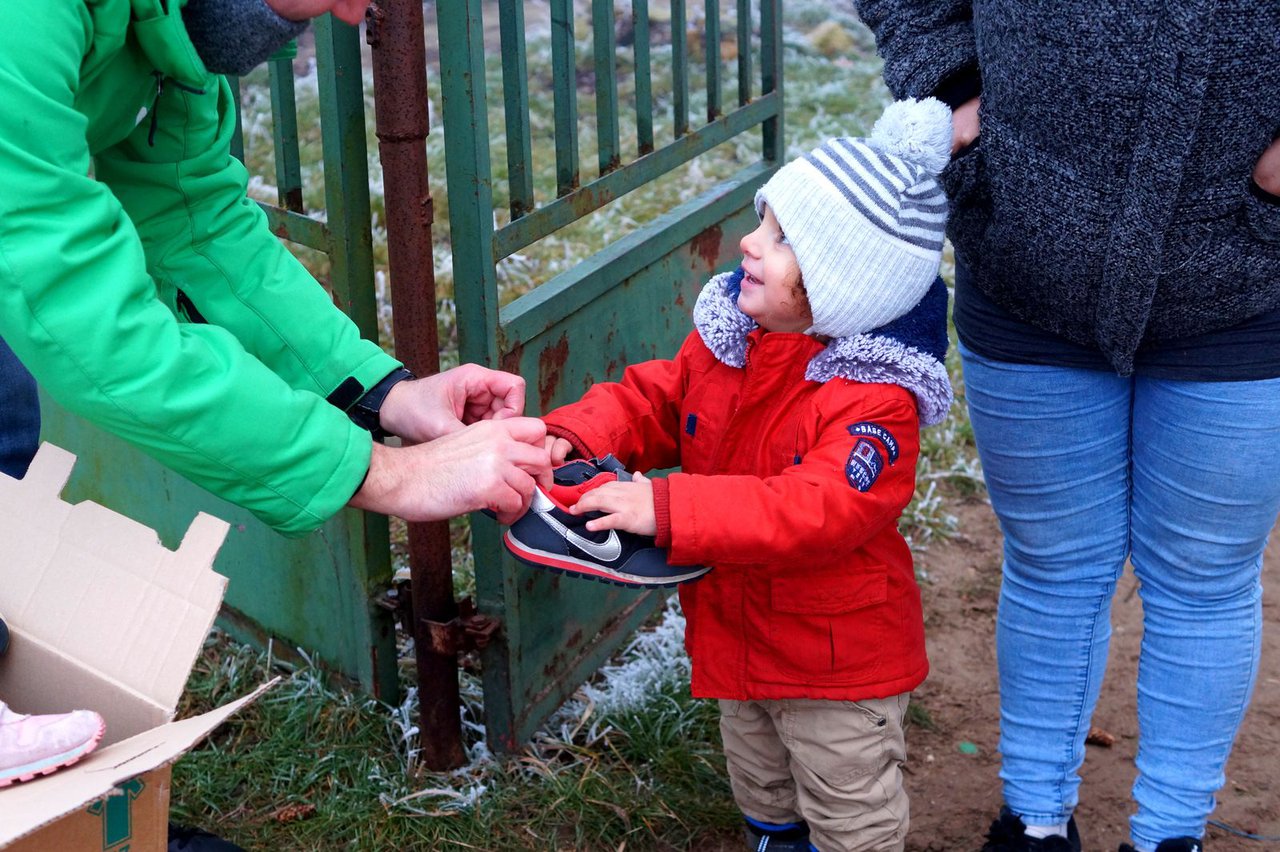
Photo: HRCA
If someone wakes up now, or even during the day on December 24th, how else can you help?
Basically, by looking around your own environment. I always say that everyone can give. I'm sure everyone can find someone in need that they can help. The phrase "better to give," which is our motto from Jesus, is a different feeling when you can help a fellow human being yourself. It doesn't even have to be a monetary or material donation, a kind word or help to a neighbour, a shopping trip to a disabled or elderly person can also give a lot. There are countless ways to help, and everyone can. When we talk about how we, the church aid, can be supported, I have to say that we are already with our family on the 24th. This is a very busy time, when we are working ourselves to the bone, working weekends and after hours, so we don't have any activities to get involved in on 24 December. Programmes that run beyond Advent can be supported via the website adomany.jobbadni.hu or via the 1358 donation line.
What other tasks await HRCA staff this winter?
After Christmas, we will start our Neighbours programme, which will focus on providing firewood to 1,400 families across the country, and will also launch regular hot food distributions and tea drives. There is also a special topicality this year, namely that the homeless mission has also been transferred to the Hungarian Reformed Church Aid. As our ninth social mission, we have taken on this task as well, thus strengthening our links with the homeless care system.
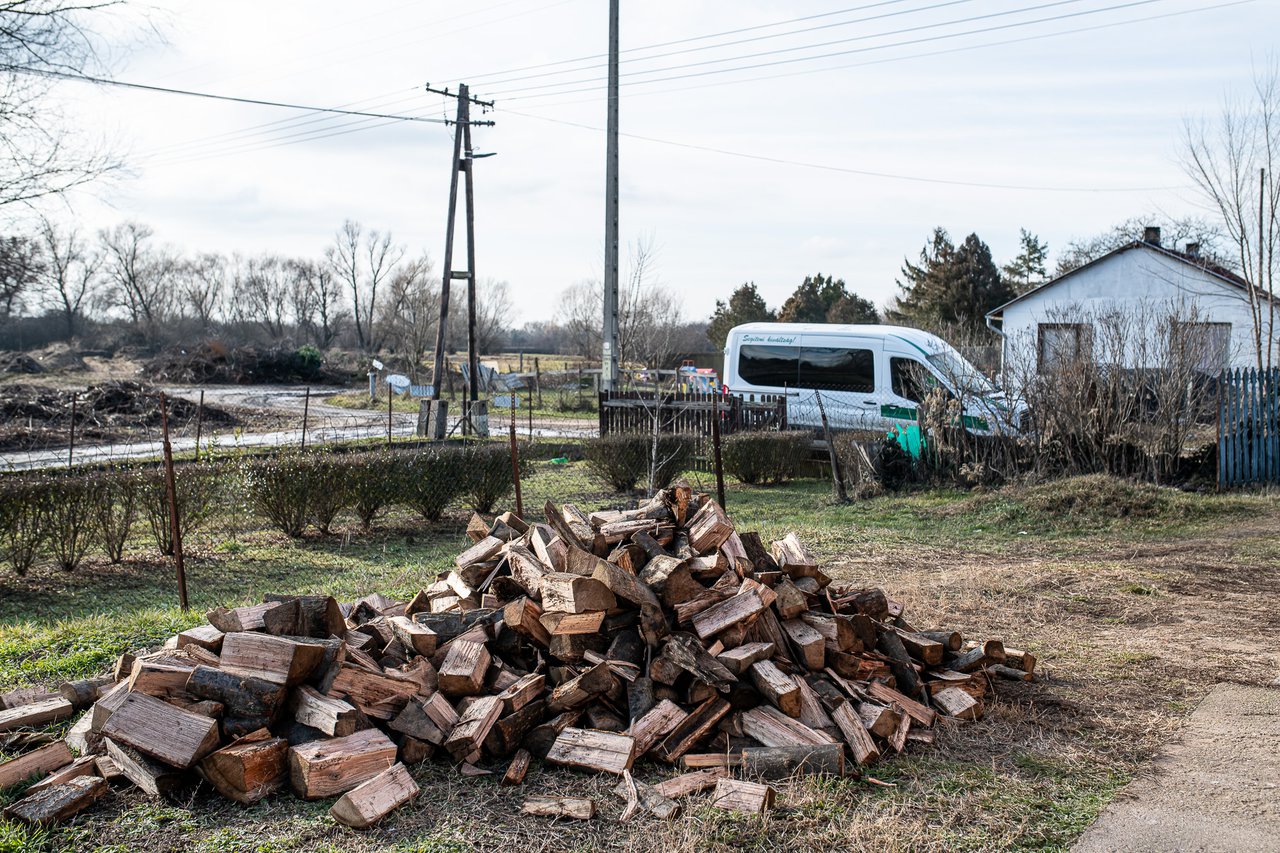
Photo: HRCA
Transcarpathia and the Russian-Ukrainian war may not have been a much talked about topic this year, but they are probably still working hard to help the people of Transcarpathia and those fleeing the war. What challenges have you faced recently in this regard?
The war in our neighbourhood is no longer on the radar of the majority of people, and the social cohesion, volunteering, and donations that we saw in the first half of 2022 are no longer present this year. Nevertheless, we are still doing our service in several areas. One is Záhony, where we have been there practically around the clock, seven days a week, since the outbreak of the war, providing continuous on-call services, helping refugees arriving by rail, maintaining accommodation, and operating a help point together with the local government. We provide overnight accommodation, next-day packages, cleaning, dinner, and breakfast for those who arrive, and we have a joint programme with UNICEF where we provide a so-called safe place for children to wait and spend time in a child-friendly place.
How many more will arrive?
I can't give you a daily average, but I know that at the moment, there are about 300-400 people crossing the border from Ukraine at Záhony. This, of course, varies because it depends on what kind of operations are going on at the front.
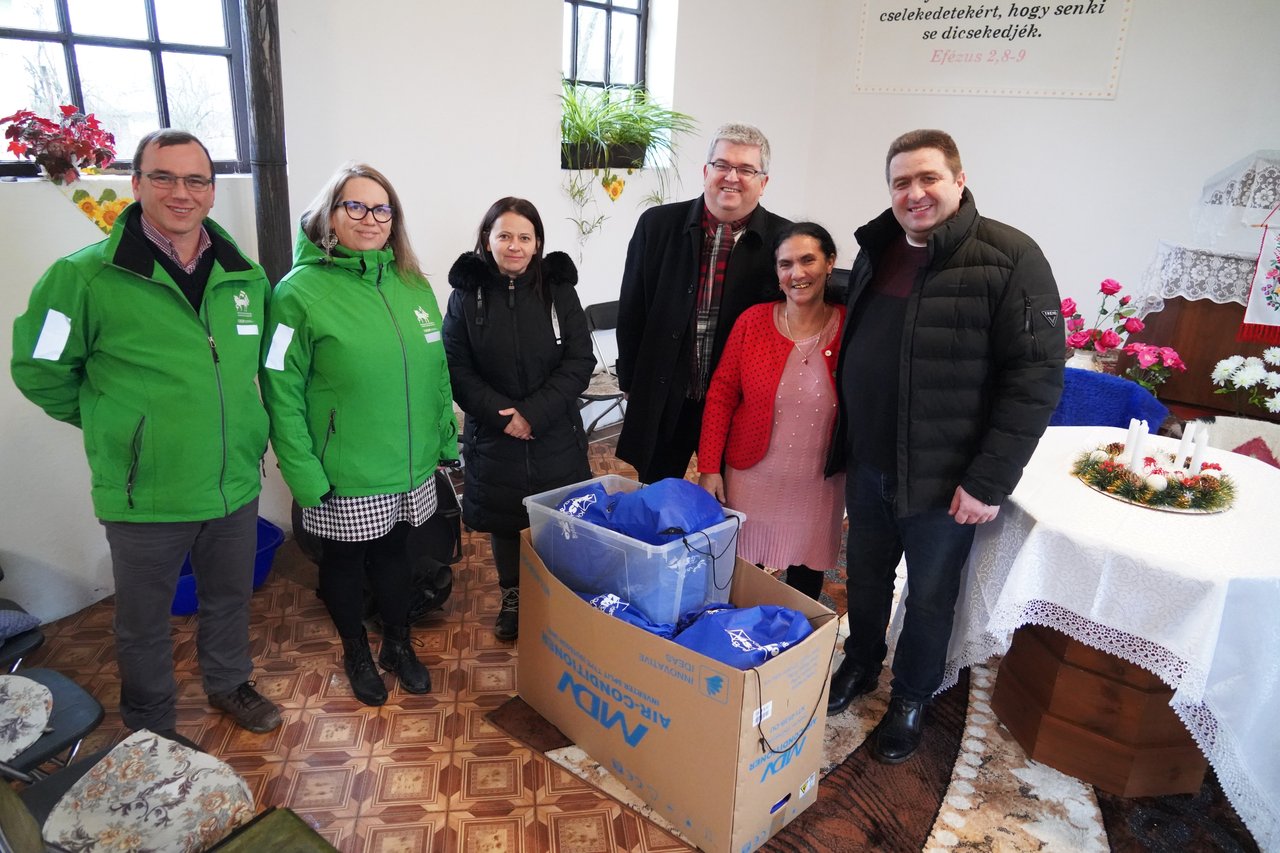
Photo: HRCA
And those who are already here?
We provide them with refugee accommodation in a converted building in Budapest, and refugee mission staff carry out integration tasks throughout the country. We provide housing, Hungarian as a second language, integration into school or work, access to health care, and support around 300 families a week with food and toiletries at our donation point on Marek József Street.
It should not be forgotten that we receive refugees not only from Transcarpathia, Ukraine, and Russia but also from other parts of the world. What has been coming to the fore more and more recently is the arrival of persecuted Christians. Very little is said about this, but Christianity is the most persecuted religion in the world, and many are still suffering humiliation, persecution, or even martyrdom for their faith. It is not a popular topic. We see a lot of harsh cases: for example, one refugee had all the bones in both hands broken, or the skin was peeled off another's leg, a little girl had her hand shaved off, and the other one I met the other day had his father beaten to death in broad daylight in the street in front of him by the police. The latter's wife and children also come to visit our family during the holidays. So, the refugee missionary colleagues have a heavy burden on their minds, not just physically.
How is Transcarpathia being supported?
Since the outbreak of the war, we have been stepping up our support in this area, but even before that, we were supporting it as much as we could. We have signed a strategic cooperation agreement and have much closer diaconal cooperation with all the church bodies in the Carpathian Basin. We have good relations with all ten Carpathian Basin church districts, but especially with our brothers and sisters in Transcarpathia, where the need for help is greatest. We support them in many of our programmes, for example, we have just started one to support twenty-four soup kitchens for the poor for ten months. In these kitchens, we will support the distribution of nearly 200,000 hot meals over the next ten months. To date, we have helped almost 200,000 people from Transcarpathia and the interior of Ukraine in various ways. On the one hand, refugees and Hungarian brothers and sisters who stayed at home, and on the other hand, at home. We are trying to meet the requests of the Transcarpathian diocese, because they know what is needed.
A new warehouse was opened in Nagytarcsa this year. Why is this a big step? How does it help your work?
It's much more modern, much bigger than our previous warehouse, and the working conditions are much more civilised. We cannot pay market wages to our staff, so it is important that at least their working conditions are better. Moreover, we were able to buy this warehouse with our own funds from the Hungarian state, so we don't have to pay rent, and our overheads are lower.
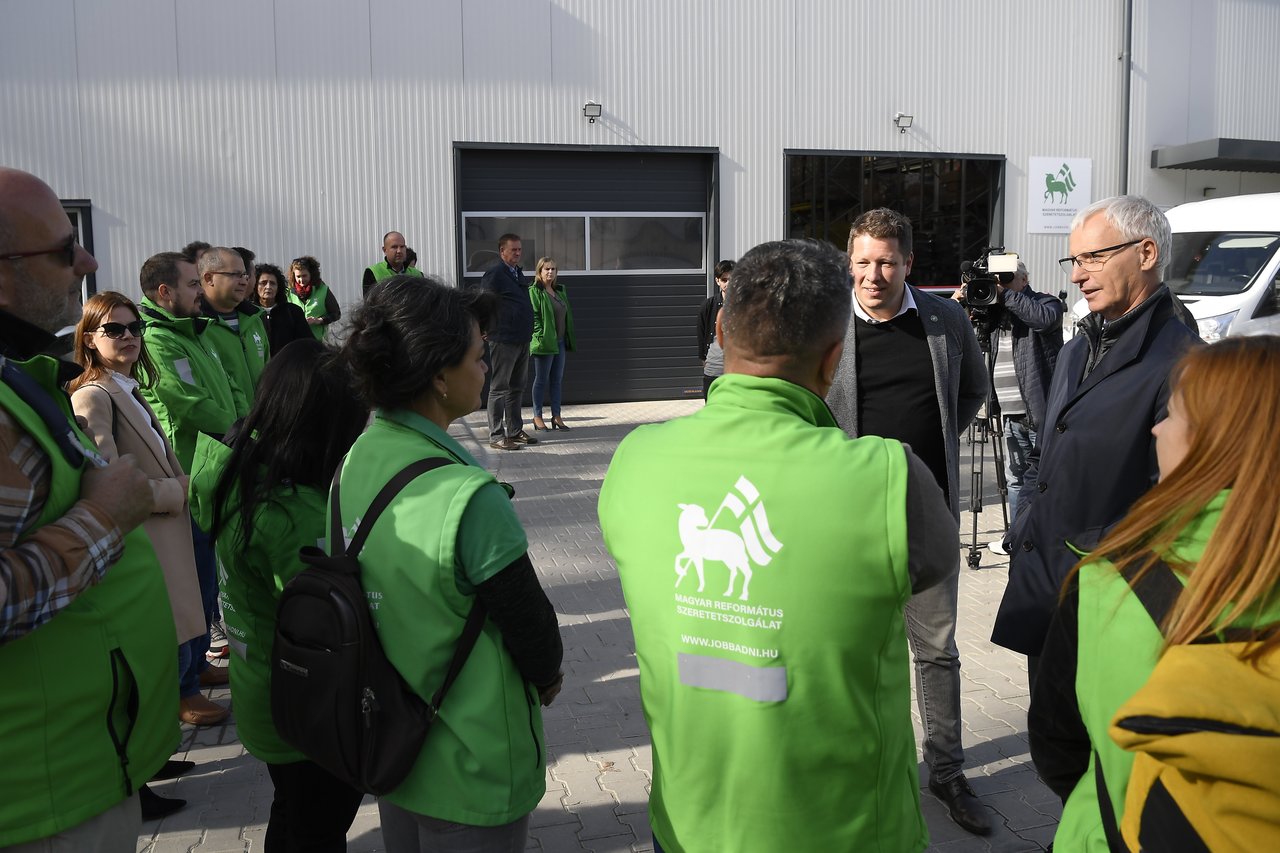
Photo: MTI/Tamás Kovács
What was the most stressful task for either you or the HRCA in the past year, and was there a truly uplifting moment?
I think you should ask each staff member individually because everyone has a different difficulty. It is not easy, for example, in the Catching-up Settlements programme, to add thirteen new municipalities to the twenty-one that were included in the programme. It is a challenging task. We now have more disabled workers, and we can employ them in more places and more jobs. For me, the most physically and mentally demanding was the earthquake in Turkey, where nineteen volunteers and professional firefighters, medical staff, and four rescue dogs were out looking for survivors, and, thank God, we were able to help find and evacuate five survivors.
It's amazing how human life is so fleeting and how houses, homes, desires, goals, plans, and dreams can collapse from one moment to the next, making all efforts unnecessary. There is not a single person who has not lost a friend, a relative, an existence, or a job. The devastation occurred over an area larger than Hungary and caused more than 50,000 deaths. We were also in Morocco in September, where we helped the survivors of a major earthquake, mainly with donations. While we were there, we met the Reformed brothers and sisters in Marrakech, and we were able to support them with financial donations, and hopefully we will continue to do so. They are trying to help refugees from sub-Saharan Africa with what little they have. Many of their charity buildings are in need of renovation, and they live and work in conditions that seem as if we have gone back in time at least 20 years: they have furniture and computer equipment that we cannot imagine. And yet, with what little they have, they help us.
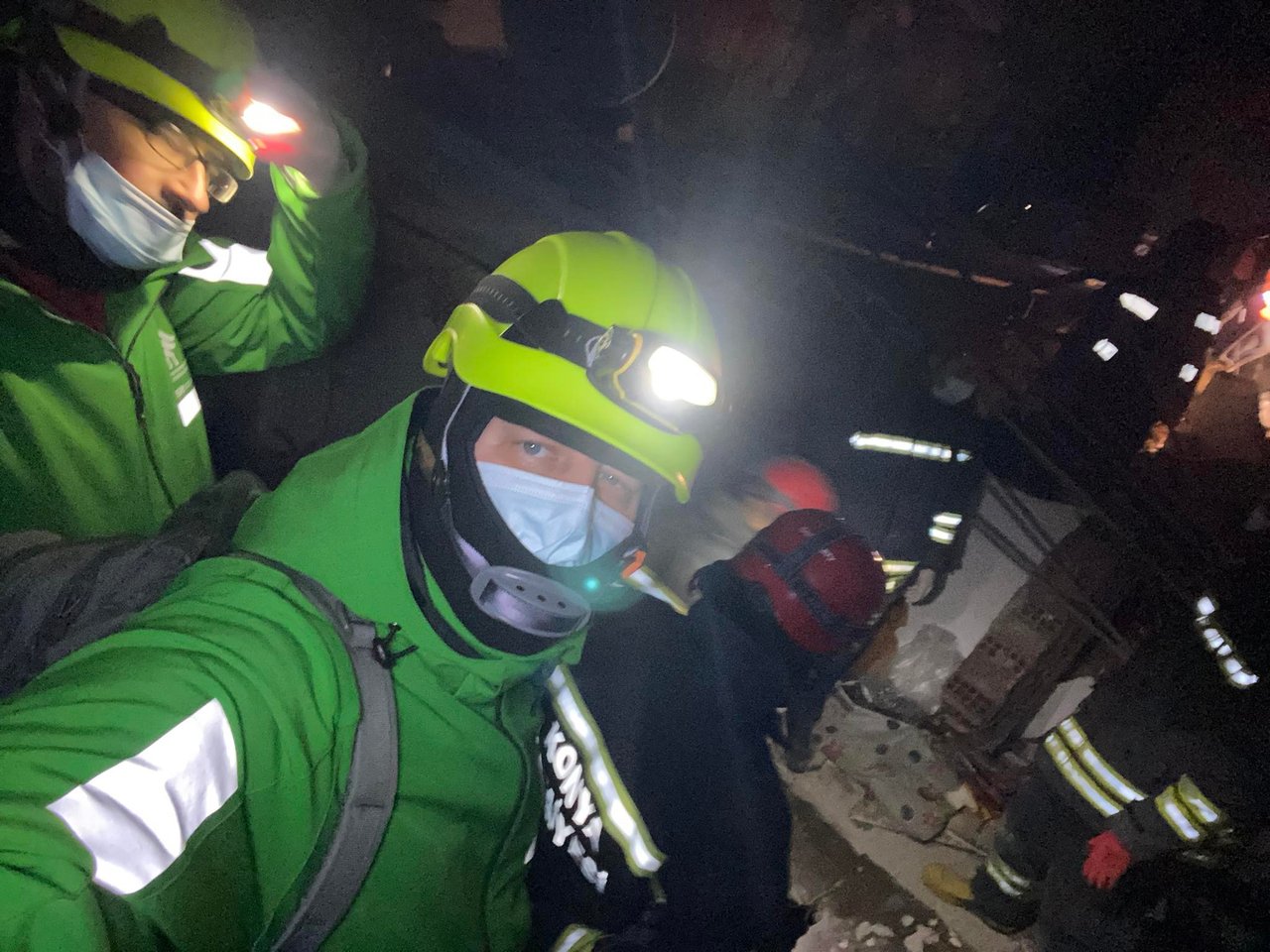
Photo: HRCA/Márton Juhász
I imagine that, in addition to trips abroad, there are many ways to help those in need at home.
We started the year by distributing five million forints worth of wood as a result of fundraising. This year, we also had hot food distributions and tea drives at the beginning of the year. In May, our Bridge of Love programme had fifteen thousand registered volunteers, but many people don't register; they just turn up to help. In the summer we organised three day camps and forty-six day camps, an amazing number never before in the history of the charity. More than 1,500 children attended the day camps, and one hundred and eighty young people attended the day camps. We supported the organisation of children's camps in Transcarpathia with eight and a half million forints. A total of four hundred and fifty children took part in these camps. Then we had a collection of school supplies, and we were able to put together more than 1,600 school supplies packages. We are also sending supplies to Transcarpathia, Transylvania, and Croatia.
Our “Nyilas Misi” scholarship programme was also very successful this year, and the renewed jury has given the programme a new impetus. The judges include names such as world champion deep diver Fatima Korok, actor József Wunderlich, and dance artist Teodóra Bán. There were multiple over-subscriptions, with 50 people starting the new scholarship programme in January. We should also mention the natural disasters in Hungary: in Baranya and the Nagyecsed area, there was very severe storm damage, where the church aid provided immediate and long-term assistance. At the end of this year, the Philemon ministry was launched to bring the charity into live contact with as many churches and institutions as possible. Connected congregations will have a contact person who will be informed of programmes before they are officially announced, and congregations can also ask us for information or bring to our attention those in need in their sight. We want Reformed people to feel that this charity is theirs and that it is carrying out its ministry as an outstretched arm of the church.
What are your plans for next year?
There are more, but we'll talk about them next year. We expect to start our complex catch-up work in seventeen more municipalities, mainly in Szabolcs-Szatmár-Bereg, Borsod-Abaúj-Zemplén and Hajdú-Bihar counties. A successful story is the launching of craft workshops to create jobs and showcase the skills of disadvantaged workers, and we will continue with this. We have started the leather craft activity in Mezőladány, and we are now also organising an advent fair with these products in three locations: in Budapest in Alleé and Westend, and Debrecen at the Christmas market. Next year, we will start producing and selling textile and ceramic products, and we will also move a little bit towards souvenirs so that we can target tourists coming to Hungary with these products.
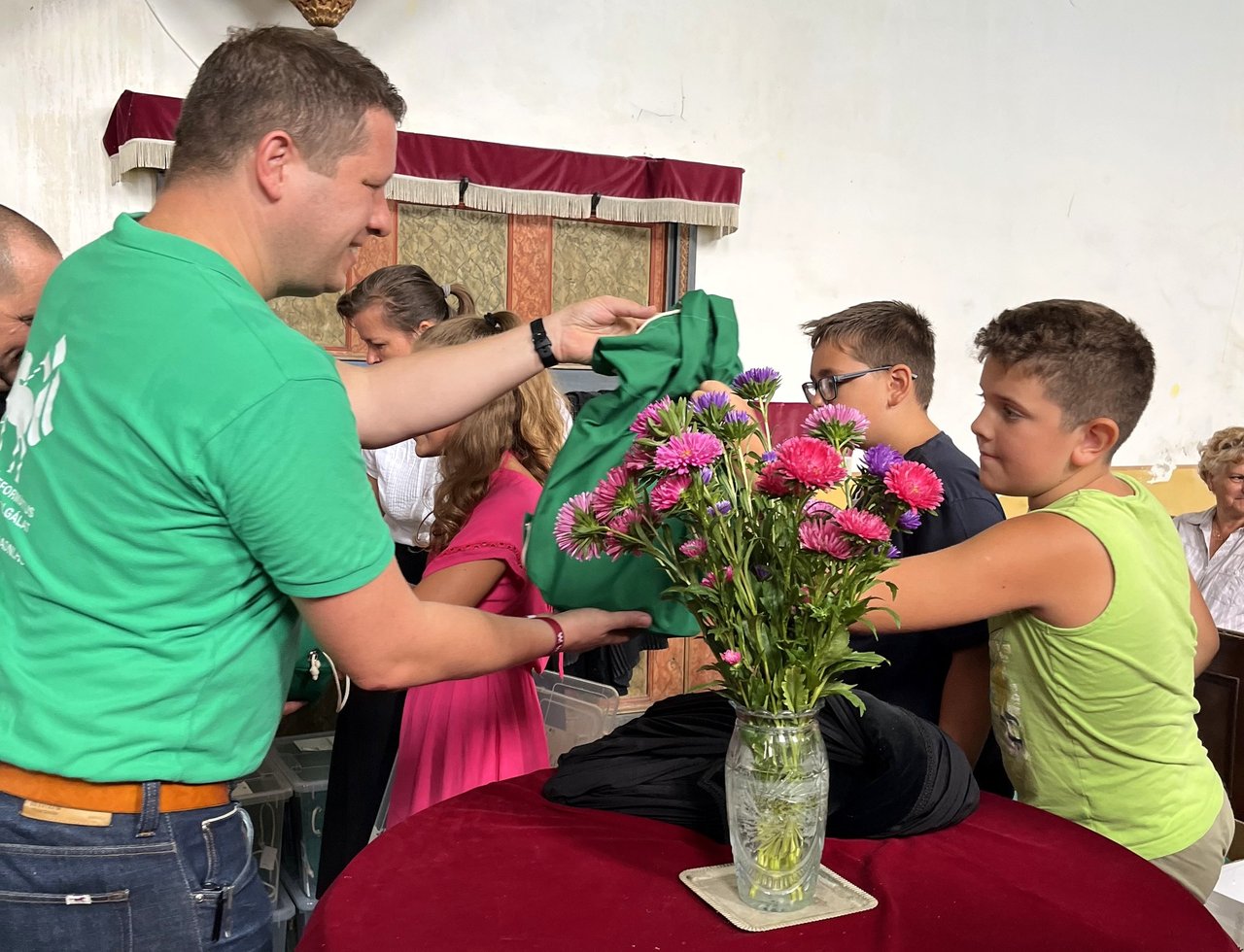
Photo: HRCA
You hear and read in many places at Christmas that giving presents is not really important, and you can find the view all year round that one person cannot change the way things are. How can the head of the charity respond to this?
There are five love languages, which, according to Gary Chapman, are words of appreciation, quality time, gift-giving, acts of service, and physical touch. Practising any of these with your fellow human beings - preferably the ones that are important to you - will help them. We give gifts primarily to children, and our experience is that all children welcome them, but many expect us to go and care for them. For example, when we were going to the dormitory in Nagydobrony, the girls had already sent us a message in advance that it was very important for them that we not only run in and give the gifts but also talk, sing, and pray together. But where it is not a question of whether the Christmas tree will be silver or spruce, or how many courses the Christmas feast will have, but whether there will be something to put on the table for the children, or whether there will be something to fire, it is also very important to give gifts.
I think the sixth love language is to preach the gospel, to talk about what we celebrate at Christmas. The most important thing is to share the Good News with everyone, to pass on the love that we have received. Divine love is not personal. We human beings give gifts to those we think deserve them, to those we love, and God has already prepared the gift in Jesus, not because we are good, but because it is prepared for everyone. Like a candle whose light shines on everyone. We do not have our own light, but we can reflect the light God gives us. We can say that we act like a kind of moon, but the moon has a strange property: a light side and a dark side, so we have to be careful and ask the Lord to be the light side and reflect his love.